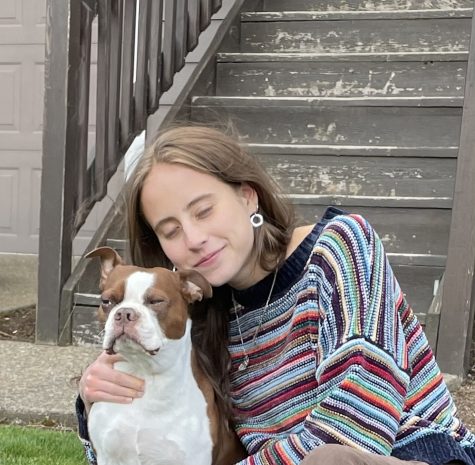How TTSD helps, protects victims
April 29, 2022
As April comes to a close, we at The Wolf recognize that sexual assault awareness needs to stay alive, given how sexual assault does not leave once the month ends. TTSD is a community, and this means every student and staff member has the job of protecting each other from harm.
First and foremost, we note that even “minor” harassment is still valid. Students deserve to be protected from any form of sexual harrassment, regardless or whether it is physical or digital.
Oregon School Board’s Association (OSBA) defines sexual harassment as “physical touching or graffiti of a sexual nature; displaying or distributing of sexually explicit drawings, pictures and written materials; sexual gestures or obscene jokes; touching oneself sexually or talking about one’s sexual behaviors in front of others; or spreading rumors about or rating other students or others as to appearance, sexual activity or performance.”
The district asserts that it does not take these cases lightly and that they will work to keep the victims safe, even if the case is not within the district.
“We may have an incident that has nothing to do with it; however, maybe two students still go to the school, walk down the hallways, so we might ensure that there is a safety plan, or ask what does that victim/survivor need, etc,” TTSD Director of Secondary Education Amber Fields.
TTSD is also working on partnering with the Sexual Assault Resource Center (SARC) to implement more informative lessons on sexual assault and harrassment within the curriculum, specifically in middle school and high school health classes.
District officials assert that the only way to prevent sexual assault is if we, as a community, work together to protect each other. In our school, specifically, education is the most imperative. Teaching consent is important, but experts agree it is not enough. Through education, we can teach active bystander intervention whenever we notice a potentially harmful situation. Some examples of this are changing the conversation, creating a distraction, asking the victim individually and discreetly if they need help and offering support, like a ride home.
Victims and survivors need our support. Experts say if you know someone who is a victim, please do not ask for details about the event, downplay the assault, tell them what they should do (file a police report, etc.) or tell them they should be over it.
If you are in a situation where you are uncomfortable, trust your instincts and do whatever you need to do to stay safe. Remember, it is never your fault.

